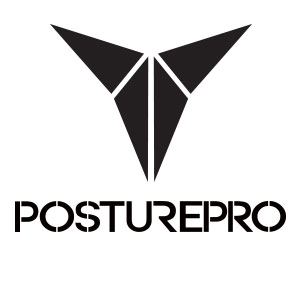We’ve been mislead to believe that “you are what you eat”, whereas in actuality “you are what you absorb”, and posture, as in many things, has a few interesting impacts on nutrition that few suspect.

Good nutrition is the foundation of health, just as posture is the foundation of good movement and biomechanics.
As everybody knows, being told by their moms since childhood, it starts with the right choice of food, which stems from good dietary habits. But nutrition isn’t just that.
Nutrition is the cornerstone of metabolism, and good eating means good bones, good muscles and good conjonctive tissues.
But what if your posture could affect your ability to absorb and digest food?
The way a person stands and moves can have an impact on the stomach and intestine and diaphragm (1). Posturology is a technique that aligns both the pelvis and scapular girdle. By doing so, all organs found between them move better. When the body is aligned, it can operate optimally. When the body is aligned, it can operate optimally. By optimizing posture, effects can be seen on the stomach, intestine and diaphragm (while standing or sitting) and therefore digestion can actually be improved.

A group of scientists speak about the effect of posture on digestion. Volloria et al. discovered that patients with Irritable Bowel Syndrome (IBS) that complained of bloating and gas had unusually relaxed oblique abdominal muscles, possibly caused by unusual diaphragm contractions (2). This may indicate that the positioning of the body during a meal can affect the parts of the body that aid in digestion. If the position of the body is not optimal, it can produce negative effects.
In this study (3), researchers compared lying down to sitting up after a meal . They found that the women who lay down digested their food more slowly and had much less malabsorption. Meanwhile, the women who sat up had significantly more malabsorption.
Another study, by the same group found a similar result for milk sugar (lactose): lying down improved digestion of lactose and reduced malabsorption compared to sitting up.
The most obvious absorption problem begins in the stomach, but it is not the first. Mastication would precede absorption. Recent studies have demonstrated that the position of the jaw affects overall posture (4), and misaligned jaws are frequent in the population, making your mom’s call of “chew your food” much less about the food than about adequate alignment of the temporo-mandibular joint.

Food that has been improperly or incompletely chewed offers less surface contact to the acid of the stomach and the enzyme of the intestine, thus diminishing the absorption of nutrients.
In conclusion, poor posture, such as a forward-leaning torso (also knows in Posturology as an anterior scapular plane) causes unnecessary stress on the all muscles and joints including the diaphragm. This could also explain digestion problems such as hypochlorhydria, a condition in which the stomach is not producing enough hydrochlocic acid.
Food that hasn’t been properly soaked in hydrochloric acid, the natural acid our stomach produces, prevents the absorption of proteins as well as essential minerals like zinc, magnesium and calcium. Key nutrients that are vital to the body’s functioning. The acid itself is also uses a chemical signal from the stomach to the rest of the digestive system before digestion can start, and a less acid can compromise the production of pancreatic enzymes, bile and other important hormones such as somatostatin, while also slowing peristalsis.

Let us not blame only posture. Poor nutritional habits are doing more than their fair share, but even what little proteins, good fats, carbohydrates, vitamins and minerals are in the worst of food have even less chances of being absorbed properly if the person doesn’t have a good posture.
So as you can see, it’s not just a matter of what you eat, but what you absorb, and a body that’s been aligned and fine-tuned with Posturology can be an integral part of a good metabolism.
If you like this article please share and tag your friends.
1- https://www.ncbi.nlm.nih.gov/pubmed/11938608
2- https://www.ncbi.nlm.nih.gov/pubmed/21540894
3-https://www.sciencedirect.com/science/article/pii/S0304394003014137
The Posturepro Team
Superior Performance
Copyright © 2016 Posturepro™


